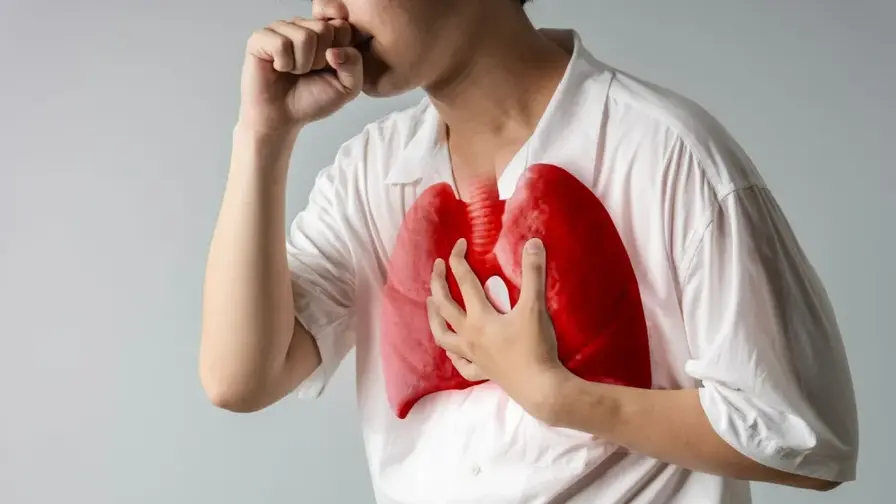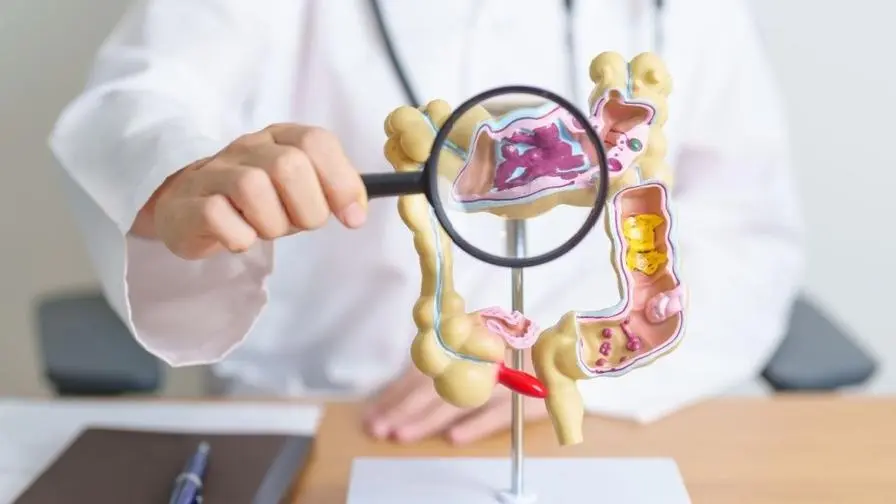The prevalence of depression is the highest among all cancers! Doctors warn patients with advanced lung cancer: risk of poor prognosis increases 2-3 times

Is “moderate to severe depression” a drag on lung cancer patients’ treatment? Medical warning: The risk of poor prognosis increases by 2-3 times
According to a 2023 study in the journal PLOS ONE, lung cancer patients have the highest proportion of depression among all cancer types. Lung cancer patients with moderate to severe depression are 2-3 times more likely to have a poor prognosis. Dr. Chen Yumin, chairman of the Taiwan Society of Thoracic and Intensive Care Medicine, said that patients should adjust to the anxiety and depression caused by cancer in order to have the opportunity to maximize the effectiveness of treatment.
Chairman Chen Yumin further said that in addition to a complete treatment strategy for patients newly diagnosed with advanced lung cancer to strive for a survival goal beyond five years, it is crucial to adjust their mood appropriately before starting treatment. The treatment of advanced lung cancer has made great progress compared with the past. In the past, the five-year survival rate was only 10-15%. Fortunately, genetic testing can now be used to find suitable treatments and maintain a better quality of life.
Newly diagnosed lung cancer brings a huge impact to patients. The prevalence of depression is the highest among all cancers.
However, the huge shock and life threat to patients when they are first diagnosed often makes patients and their families feel shocked, scared, and even disbelieving and want to escape reality. If it turns into depression, they are more likely to suffer from poor appetite, insomnia, etc. Physiological symptoms, on the contrary, affect the effectiveness of subsequent treatment of patients.
Dr. Yang Zhengda, chairman of the Taiwan Lung Cancer Society, mentioned that in order to provide patients with advanced lung cancer with more complete treatment and care, the lung cancer team has gradually extended from the original core departments of thoracic medicine, thoracic surgery, and medical oncology to diagnosis-related departments. In addition, the treatment process will also be based on the needs of the patients, and auxiliary specialists will be added in a timely manner, such as traditional Chinese medicine for conditioning, dermatology for side effect management, etc.
On the psychological level, the addition of a counseling psychologist is expected to reduce patients’ negative emotions and assist in emotional catharsis and support. If a successful senior sister can have her disease under stable control in the early stage of treatment, share her anti-cancer journey, provide every newly diagnosed patient with anti-cancer reference indicators and build confidence in treatment, I believe it can bring greater motivation to anti-cancer to patients. .
After hearing the bad news that she had cancer, she “didn’t get out of bed all day” and tried various home remedies just to divert her inner anxiety.
After a female patient retired, she was about to start planning for a second life. She originally thought her long-term rib pain was caused by menopause. After further examination, she discovered that she had been diagnosed with stage four lung cancer that had metastasized to her ribs. She was so panicked and sad that she lay in bed all day. I had a low sense of self-worth and felt very anxious. Not only did I become obsessed with unorthodox therapies, I even tried various folk remedies. Later I found that they were just diverting my inner anxiety and sadness.
Dr. Xia Dechun, director of the Critical Care Medicine Center of China Medical University Hospital, explained that in clinical practice, patients who are newly diagnosed with advanced lung cancer mostly have panic and anxiety about cancer due to the overwhelming information on the Internet and the unknown survival period. Once the patients fall into depression, they will soon Psychological factors, as well as changes in the course and severity of cancer, will affect the prognosis of treatment.
Lung cancer is gradually becoming a “chronic disease”. Management must pay attention to psychological care to achieve both therapeutic effects.
The above-mentioned patient misunderstood folk remedies at first because he was in an anxious mood. Fortunately, I came into contact with a support group and through the experiences shared by successful senior sisters, I began to cope with the challenge of cancer at a steady pace. The more support I received, the calmer I felt. Then a genetic test was performed and it was found that it was an EGFR gene mutation. Therefore, according to the doctor’s evaluation, I started treatment with second-generation targeted drugs. After three years, I found resistance to the drug, and then continued to take third-generation targeted drugs. I have been fighting cancer for more than five years now. Side effects are also quite stable.
Dr. Xia Dechun reminded that in recent years, lung cancer drugs have continued to advance, and patients’ treatment options have become more and more diverse. Patients who are newly diagnosed are recommended to discuss the complete treatment plan for the next five years with their doctors, strategically arrange each line of medication, and extend the duration of each line of medication. Use time to strive for the longest survival period.
For patients with the most common EGFR gene mutation in Taiwan, continuous treatment with targeted drugs has the opportunity to extend overall survival. As lung cancer gradually becomes a chronic disease, Dr. Xia Dechun emphasized that patients can coexist with lung cancer while maintaining their quality of life, just like treating diabetes and high blood pressure. While prolonging survival, they must also pay attention to psychological care in order to achieve both. Has therapeutic effect.
“12 Letters to Patients with Advanced Lung Cancer” Leading patients with advanced lung cancer to create a slow living plan
Wu Huiru, chairman of the Taiwan All-Cancer Patient Network, said: “Becoming ill is an accident, not a punishment. We should not let ourselves or our families fall into sad emotions and be unable to extricate ourselves!” No matter whether it is a patient or a caregiver, there will be Regarding the issue of anxiety, some studies have pointed out that nearly 50% of caregivers of cancer patients are prone to depression and anxiety.
In order to help late-stage lung cancer patients and their families quickly build confidence in treatment during the early stages of diagnosis, “Taiwan All-Cancer Patient Connection” specially launched the “12 Letters to Late-stage Lung Cancer Patients” health education manual, based on the cancer-fighting experiences of 12 successful senior sisters. The psychological journey encourages patients and their families who are newly diagnosed with late-stage lung cancer and are experiencing panic and depression to better adjust their mentality and move towards the ideal of chronic lung cancer through complete treatment strategies.
Chairman Wu Huiru called on the inner care of patients and caregivers to be very important. The task of specialists is to strive for a survival period of more than five years for patients. The experience sharing and encouragement of successful senior sisters are to lead patients and their families in the fight against cancer. On the road, start from the “heart”, be able to know what to do when facing the upcoming challenges, and build a slow living plan for lung cancer calmly. 10,000 copies of the health education manual “12 Letters to Patients with Advanced Lung Cancer” will be printed and will be sent to cancer resource centers across Taiwan. The public is welcome to request it for free.





